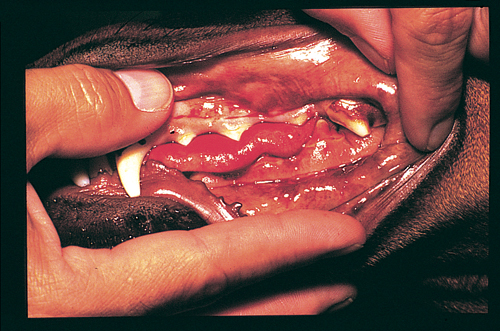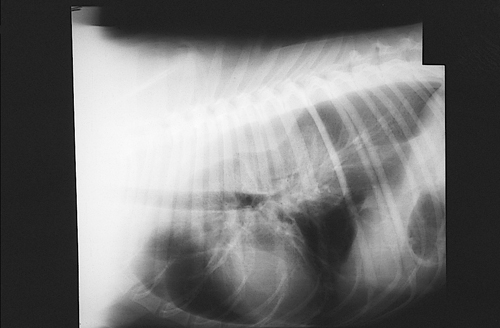Small Animal Emergency and Critical Care Medicine Q&A 22
| This question was provided by Manson Publishing as part of the OVAL Project. See more Small Animal Emergency and Critical Care Medicine Q&A. |
An 11-month-old, male Doberman Pinscher is presented with a 3-day history of coughing. In the past few hours he has started to produce frank blood and blood clots when he coughs.
| Question | Answer | Article | |
| Based on the clinical presentation, what historical questions should be asked of the owner? |
|
[[|Link to Article]] | |
| What diagnostic tests are indicated? | A coagulation profile is indicated, including a platelet count, PTT, OSPT and assays for fibrin degradation (or split) products and fibrinogen. An ACT and platelet estimate on a blood smear may help to indicate a coagulopathy. Thoracic radiographs are indicated to determine the source of the hemoptysis. |
[[|Link to Article]] | |
| Your initial diagnostic tests reveal an ACT of 3 minutes and a normal platelet estimate. What initial treatment would you implement? | Rodenticide toxicity is suspected. Treatment should consist of vitamin K1 therapy (loading dose of 5 mg/kg s/c then 2.5 mg/kg/day p/o), plus supportive care including oxygen supplementation if tachypneic or dyspneic, and whole blood or plasma replacement if indicated. |
[[ |Link to Article]] | |

